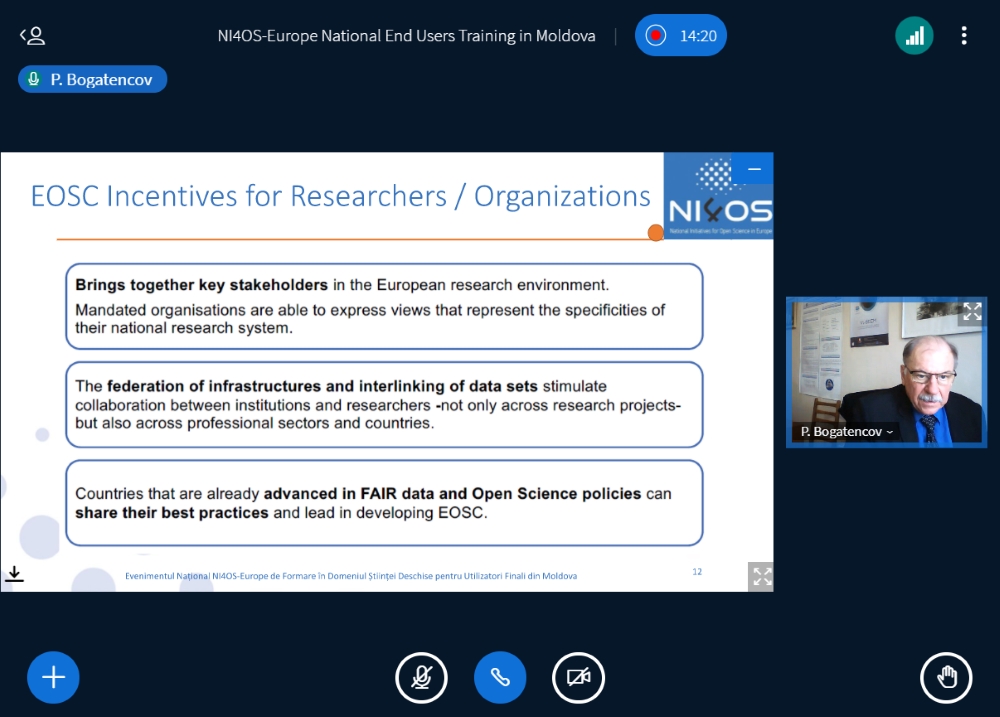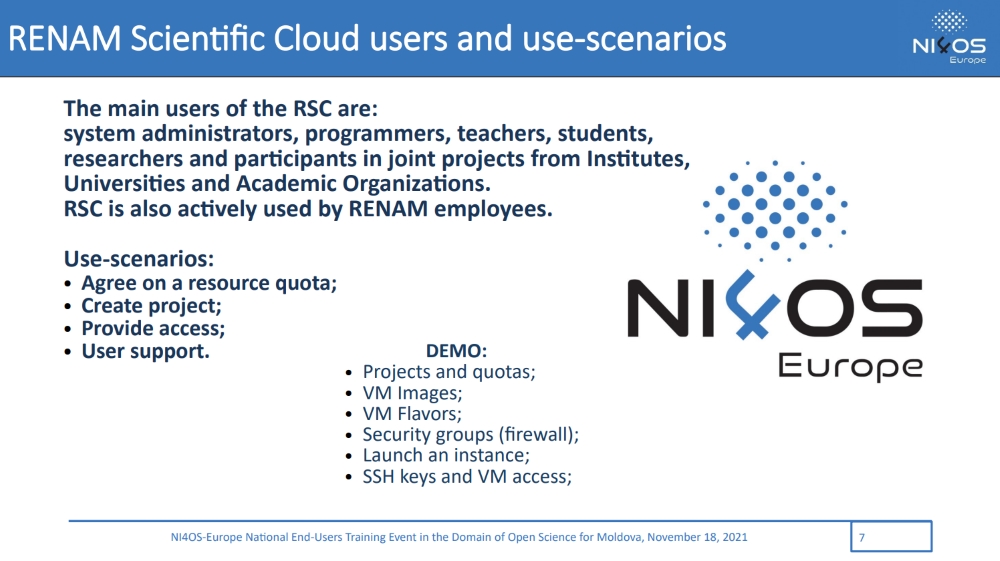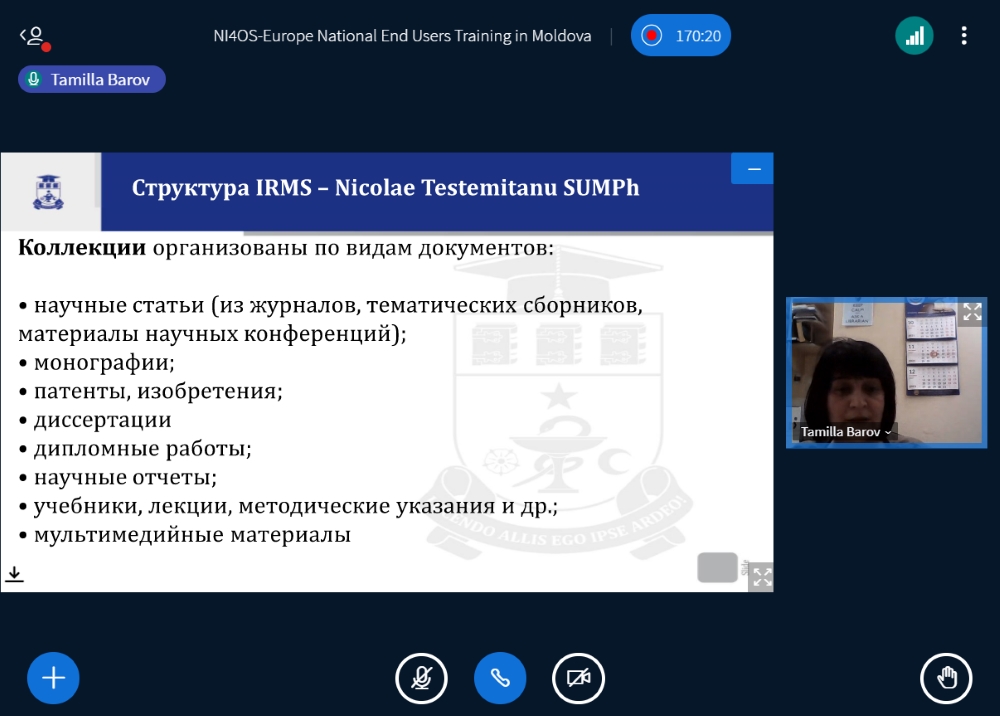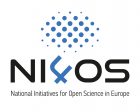Open licenses and rights of reuse of creative works, obligations of right-holders towards funders and development of repositories at the institutional level – these were the main topics discussed at the NI4OS-Europe National end-users training event in the domain of Open Science for Moldova, held on November 18, 2021. This over three-hour online event was attended by 92 representatives of Moldovan universities and research institutions, librarians and policy makers.
The event was organized by the Research and Educational Networking Association of Moldova – RENAM, NI4OS-Europe project partner.
NI4OS-Europe training platform has successfully hosted the event which was held online due to the pandemic restrictions. All slides and video recordings are available for stakeholders – 129 registered persons can view these materials in any suitable time.

The first presentation was given by Dr. Peter Bogatencov, Chairman of the RENAM Management Board, who presented the European Open Science Cloud – EOSC and its benefits, updates on the EOSC Governance structure, Advisory Groups and Task Forces, access to the EOSC services through the EOSC portal and challenges that need to overcome in order to facilitate the implementation of EOSC. Information about NI4OS-Europe project and its mission, the National Open Science Cloud Initiatives and policy support (including recommendations regarding possible organizational models and workflow needed to be carried out at the national level), NI4OS-Europe technical support in on-boarding the services into EOSC, activities on spreading the EOSC philosophy and FAIR principles in national communities and user engagement, interaction of NI4OS-Europe with the EOSC Future project, was also provided.

In the second presentation, Nicolai Iliuha of RENAM talked about the possibilities to access EOSC services available through the NI4OS-Europe catalogue: repositories, thematic services and generic services (compute, data storage, data management). In addition, the practical aspects of the running virtual machines and using RENAM Scientific Cloud and RENAM Storage Service, as well as the Proxmox virtualization platform with monitoring in Zabbix were highlighted.
Dr. Habil., Prof. Nelly Țurcan of Moldova State University and Information Society Development Institute, national EOSC promoter, stressed the need for changes in regulating relations between authors and users of creative works in an information society, particularly in the case of reuse of works within the virtual space. The rapporteur provided information about open licenses for different fields, the specifics of Creative Commons (CC) licenses and their use, major platforms sharing CC works, types of CC licenses and their usage rights, existing tool for marking work with a CC license. In the context of Open Science, there was emphasized the importance of Open Access to publicly funded research results, this requirement is also included in the Regulation of the Horizon Europe Programme, to which the Republic of Moldova has recently joined.
Andrei Moisei, principal consultant of the State Agency on Intellectual Property, emphasised the complexity of protection of intellectual property (IP) in the context of actual digitization, urging not to forget the right-holder in each concrete case, who ultimately decides what actions to take in order to properly manage IP assets. He mentioned obligations under the funding agreements and purpose – key aspects, which need to be taken into consideration, and stated the necessity for IP assets registration in case if one wants to obtain exclusive rights in the field of industrial property.

Lastly, Tamilla Barova, Head of Sector at the Medical Scientific Library of Nicolae Testemițanu State University of Medicine and Pharmacy, gave an overview of the process of creation of the institutional repository in medical sciences, including organizational issues, the developed regulatory documents and the used DSpace technical platform. The information about the repository structure, current technical operation and technical support tasks, statistics on distribution by documents and users, and perspectives of development of the institutional repository was provided.
